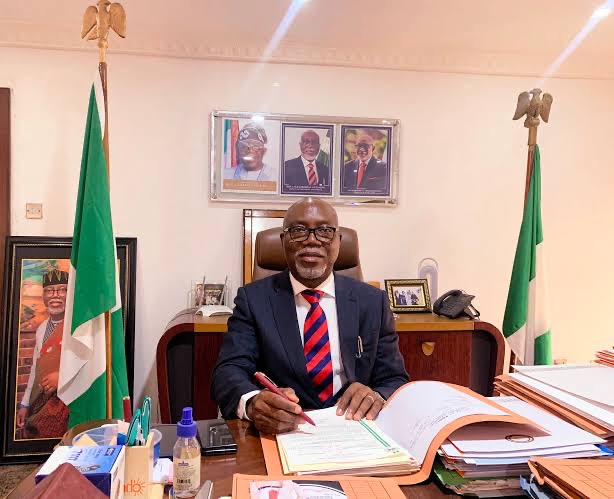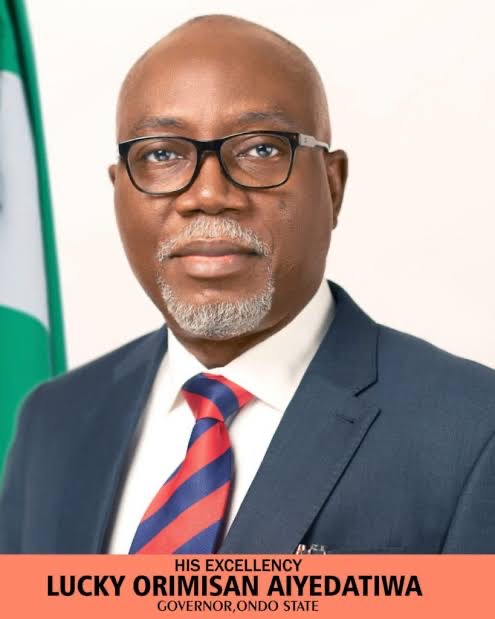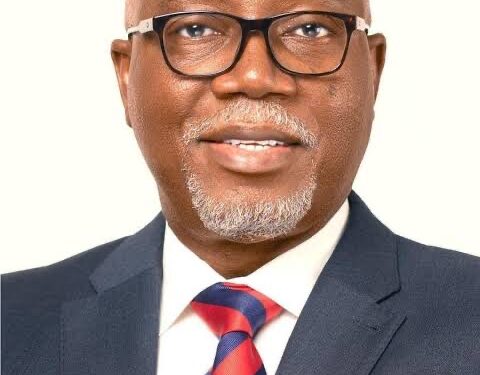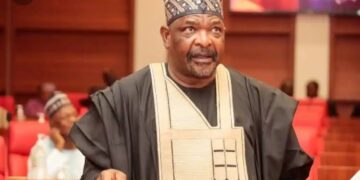In defiance of an existing court ruling that invalidated the establishment of the 33 Local Council Development Areas (LCDAs) in Ondo State, Governor Lucky Aiyedatiwa has appointed transitional committees in the impacted LCDAs.
The governor unveiled the roster of appointed transitional committees for the LCDAs and the preexisting 18 Local Government Areas in the state on Thursday morning.
Promptly responding to this development, the Peoples Democratic Party (PDP) denounced Governor Aiyedatiwa’s actions as a blatant disregard for the rule of law and a display of egregious lawlessness.

Censuring Governor Aiyedatiwa for his failure to uphold the legal statutes, PDP, in a statement endorsed by the state Publicity Secretary, Kennedy Peretei, expressed, “It epitomizes lawlessness and audacity for Aiyedatiwa to establish Committees for LCDAs that lack legal standing.
“The Peoples Democratic Party (PDP) Ondo State Chapter urges the Governor to honor the legal framework and refrain from subjecting the people of the state to his actions that diminish our standing among civilized societies.”
It is worth noting that Justice Adegboyega Adebusoye of the Akure High Court, in his verdict, invalidated the 33 LCDAs established by the former Governor Oluwarotimi Akeredolu-led administration, deeming the LCDAs as “premature and unlawfully constituted.”
The controversy surrounding the establishment of the 33 Local Council Development Areas (LCDAs) in Ondo State continues to escalate as Governor Lucky Aiyedatiwa remains steadfast in his decision to appoint transitional committees for these areas. Despite the court ruling that declared the creation of the LCDAs invalid, Governor Aiyedatiwa’s actions have stirred political unrest and drawn criticism from opposing parties.

The unfolding events have underscored the delicate balance between political autonomy and adherence to legal mandates. The clash between the executive branch’s prerogative to govern and the judiciary’s role in upholding the rule of law has brought to light the complexities of governance in a democratic society. As stakeholders navigate through this legal quagmire, the need for transparent and accountable leadership becomes increasingly paramount.
The repercussions of Governor Aiyedatiwa’s defiance of the court ruling extend beyond mere administrative decisions. They raise fundamental questions about the separation of powers, the sanctity of legal judgments, and the implications for the democratic fabric of Ondo State. The ensuing political fallout underscores the importance of upholding constitutional principles and respecting the judiciary’s independence in a functioning democracy.
In the midst of this legal and political turmoil, the citizens of Ondo State find themselves at a crossroads, torn between allegiance to their elected officials and the imperative of upholding the rule of law. As the situation unfolds, it serves as a stark reminder of the fragility of democratic institutions and the imperative of safeguarding the principles of justice, accountability, and the rule of law.



































